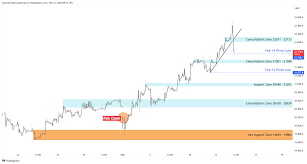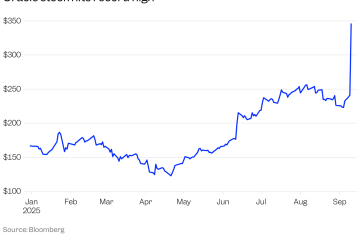Understanding the Hang Seng Index and Its Market Influence

Introduction
The Hang Seng Index (HSI) is a crucial stock market index in Hong Kong, serving as a benchmark for the overall performance of the Hong Kong stock market. Established in 1969, it encompasses the largest and most liquid companies listed on the Hong Kong Stock Exchange (HKEX). With increasing globalization and economic integration, fluctuations in the HSI not only affect local investors but also have significant implications for global markets. Understanding the nuances of the index is essential for investors aiming to navigate the complexities of the Asian financial landscape.
Current Trends in the Hang Seng Index
As of October 2023, the Hang Seng Index has shown a volatile pattern amid various economic challenges, including inflation concerns, interest rate hikes, and geopolitical tensions. Recently, the index experienced a rebound following the implementation of supportive monetary policies by the People’s Bank of China (PBOC), aimed at stabilizing the economy. This rebound indicates a strong correlation between Chinese economic policy decisions and the performance of the HSI, as many of the index’s components are major Chinese firms.
Notably, technology stocks, which make up a significant portion of the index, have been particularly impacted by global chip shortages and regulatory scrutiny. Yet, strategic investments and advancements in technology implementation have led to cautious optimism among market analysts regarding future growth prospects. The index witnessed a steady rise, fueled by positive earnings reports from several technology companies listed in Hong Kong.
Geopolitical Factors Affecting the HSI
Geopolitical dynamics, especially between the US and China, continue to cast uncertainty over the Hang Seng Index. Trade tensions and tariffs can sway investor confidence, leading to significant volatility. As seen in the past, any escalation in diplomatic tensions tends to result in immediate sell-offs within the local market, directly impacting the HSI. Thus, investors must stay informed about international relations that could affect trade and economic policies.
Conclusion
The Hang Seng Index remains a vital indicator for both local and international investors, reflecting not only Hong Kong’s economic health but also the broader Asian market landscape. Keeping an eye on the indices movements, and understanding the underlying economic and geopolitical factors, is crucial for investors. Moving forward, analysts predict that as global economic conditions stabilize and if Chinese economic policies remain supportive, the Hang Seng Index could see sustainable growth. Hence, monitoring the HSI will be pivotal for those interested in capitalizing on investment opportunities in the region.









